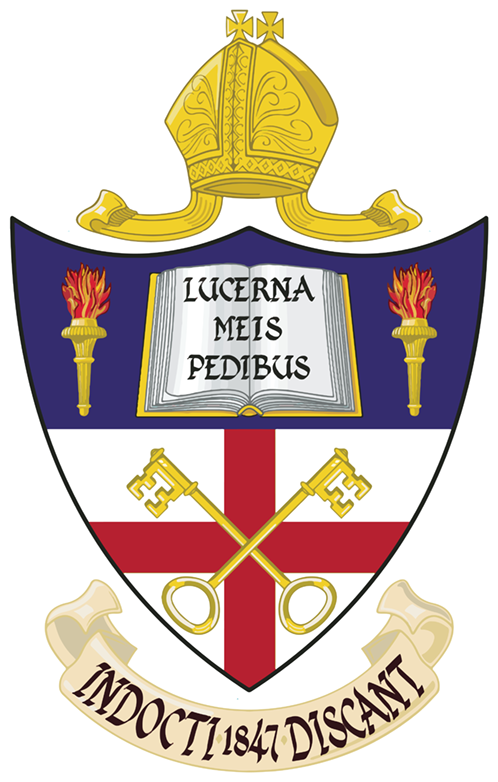Junior Section
Curriculum
Learning in the Junior Section

Language and Literature
By the end of Year VI, students achieve academic fluency in both English and in Urdu. To achieve these results, the Junior Section has approached literacy in a manner that applies best practices to learning to read and write in both languages. Regular calendar features include Urdu and English Elocution; dramatic readings which culminates in an Annual Concert.
The Junior Section Library develops a love of reading by exposing students to diverse texts of different genres in both English and Urdu and showcasing children’s literature translated into English from foreign languages. Authors and dramatic performers are invited to share their stories and highlight the importance of reading. A month-long Readathon encourages voracious reading and collection of funds for trusted charities.
Youm-e-Urdu is celebrated to provide our learners with a platform to appreciate the richness of our national language – Urdu.

Mathematics Mastery
Our hands-on learning approach enables our learners to develop an interest in Mathematics by exploring mathematical concepts, building conceptual understanding, computational fluency and multiple problem solving skills. The curriculum promotes connecting various areas of study within Mathematics through the use of real world examples, concrete objects, pictorial representations, critical thinking and reasoning.

Next Generation Science
The Science curriculum promotes inquiry-based learning and inspires the next generation of innovators at the Junior Section to immerse themselves in a wide range of hands-on activities which allow them to not only apply their scientific skills to different contexts and real-life problems, but also encourages them to engage in healthy, environmentally-friendly scientific discussions.

Geography
Our aim, when teaching Geography, is to encourage and inspire our learners to practice curiosity and fascination about the world, people within it as well as their place in it. The students develop enquiry skills, map work skills and critical thinking skills as they explore the Earth’s physical and human processes.

History
Our intent, when teaching History, is to show children how the past influences the present. Through a detailed study of different historical periods, children develop skills and concepts such as chronological understanding, continuity and change, cause and consequence, similarity and difference.

Religious Instruction
Lessons are specific, approved content-based and planned to include moments of self-reflection with a focus on self development and character building.Through a study of the basic principles and pillars of religion, we teach tolerance and promote respect for all religions. For non-Muslim children, values from biblical content are taught under the umbrella of Scripture.

Digital Learning
Digital learning and technology is an important part of our curriculum and is integrated throughout lessons. At the Junior Section, we use a range of programmes to support the children’s individual learning.

Community
Citizenship Education at the Junior Section draws on real-world experiences and effectively integrates them into the curriculum in the form of theme-based units. The concepts explored promote 21st century skills, develop digital literacy skills and encourage social skills, diversity & inclusion.

Wellness
As part of a whole-school commitment to learner wellbeing, PSHE (Physical,Social,Health and Economic/Entrepreneurial) education develops the qualities and attributes pupils’ need to thrive as individuals, as members of a family and of society.

Special Educational Needs
At the Junior Section we have a special education teacher who works with children who need extra support in order to reach their full educational potential. This includes working in the classroom to help children learn appropriate social skills and assisting them with their academic work. The teacher identifies individual needs,creates personalised learning plans with set targets and works closely with staff to help develop an understanding of different learning difficulties and learning styles. This allows teachers to actively differentiate and support those children needing consolidation.

Homework
Homework is set to help consolidate work done in class and to lead pupils to pursue their own lines of inquiry and interest.With a routine of working in the home environment,homework is an opportunity for parents to become further involved in their child’s daily education. Alongside support and praise,homework can be enjoyable and enables children to gain confidence in their ability to complete work independently.
Junior Section Sports Life

Physical Education
Physical Education is an important part of life at the Junior Section.We follow a high-quality Physical Education curriculum that inspires all pupils to develop physically and creatively through activities such as fitness exercises and athletics. Within the Games programme, all pupils are encouraged to compete in traditional sports which build character and help to embed values such as fairness, sportsmanship and teamwork. Our ‘sports for all’ approach allows all boys and girls to participate in House and inter school athletic and field events.
Swimming is included in the physical education curriculum. Pupils have the opportunity to use the on-site swimming pool to develop their confidence and competence in aquatic activities. Our school regularly wins district and national championships,our swimmers achieve at the highest levels and our alumni can be found on many national team rosters.
Arts and Culture

Music
Karachi Grammar School celebrates music and movement as a foundation of academic well-being and achievement. We strongly emphasise the development of the human voice with each class having weekly Music lessons, centred on choral singing. The children are taught basic choral and vocal techniques including posture, correct breathing, diction and enunciation.
Art, Craft and Design
The programme is designed to encourage children to use their creativity and imagination. Drawing, painting, origami, clay work and other craft techniques are incorporated to equip our learners to express themselves through various forms of Art. Children are provided opportunities to evaluate work done by their peers as well as other well-known artists, using subject-specific vocabulary. Lessons are inclusive, individualised, innovative and often integrated with school and community-related events.This culminates in an Art Exhibition, held at the end of the academic year showcasing our learners’ artistic endeavours.
Junior Section Classroom


After School Clubs
Here at the Junior Section, we acknowledge and encourage learning beyond the classroom.On four afternoons a week there is a programme of after school clubs providing an excellent opportunity for children to explore a range of skills and activities.
We offer an extensive list of activities that cater for all age groups and their varied interests,including badminton,roller skating, music, cooking, drama and taekwondo. The activities reflect the interests and enthusiasm of pupils and the staff running them.

The School Concert
This usually takes place in December and involves each and every student enrolled at the Junior Section. Dramatic reading roles are given to class VI students after a rigorous auditioning process. The remaining students are either part of the Choir or movement. The concert is based on well-known musicals and is a colourful display of each child’s talent.

Boy Scouts
Scouting is a well-loved activity, with weekly pack meetings providing fun, hands-on learning experiences emphasising practical skills like camping, emergency preparedness and citizenship,as well as focusing on teamwork, commitment and service to others. One of the highlights of the Junior Section scouting calendar is the annual Day Camp, where cooking over a campfire and ‘sleeping’ in a tent are some of the exciting activities that our Scouts experience.

Girl Guides
Guides discover the fun, fellowship and power of girls together. Through a wide variety of enriching experiences, they build their curiosity, kindness, and can-do spirit. Day camps are often the young Guides first experience with camping, where they participate in many of the traditional camping activities – crafts, making s’mores and cooking outdoors. And as they earn badges, they find a safe place to grow, make new memories and deepen their friendships.

Band
The Junior Section Band is a group effort which focuses on group goals and the completion of those goals during every rehearsal and performance. It teaches our young musicians skills such as artistic expression and fosters creative thought and growth. Consisting of woodwind, brass and percussion sections, the Band’s repertoire extends from the National anthem and school song to include several popular arrangements which are played in school Assemblies and other such occasions.

Co-Curricular activities
A strong and varied co-curricular programme is an integral part of the Junior Section experience and takes place during school or after school hours, allowing pupils to explore a plethora of interests. The activities complement what pupils are learning in school and support intellectual, emotional, social, creative and physical development.
❖ Science Week:The Science Week is an annual event held in the Junior Section to celebrate the role and value of Science in our lives.
❖ Book Week: All Year groups of the Junior section come together to celebrate the pleasure of reading.As well as exciting classroom and library activities, an assembly and Readathon, authors and dramatic performers are invited to share their stories and highlight the importance of reading.
❖ Youm-e-Urdu: Is a celebration of the Urdu language in the Junior Section, and a diverse array of activities such as mushairas, qawwalis, skits and dances, are presented by the linguists of Year VI.
❖ Afternoon Games/Intra-class Matches: These activities add to the morning programme of PE that the school offers and provide further opportunities for participation, competition and excellence in sport.

Sports Day
The Annual Sports Day provides an opportunity for all the young athletes of the Junior Section to showcase their athletic skills, learn important lessons about competition and teamwork all the while enjoying a happy, healthy dose of fresh air in the company of team mates and parents. Every child gets the chance to participate in different physical activities, along with parents and staff, who have their own events! Representing their Houses adds a competitive team element, the ‘House’ spirit and pride are strong, the cheers are loud, and the atmosphere is electric.

Swimming Gala
Swimming has a strong tradition at the Junior Section and part of that tradition is
The Annual Swimming Gala, an aquatic festival designed to cater to swimmers of all abilities and levels. It is based upon recognising and celebrating the skills achieved during swimming lessons and is a fun, inclusive, multi-skilled and multi-event activity.It is designed to encourage our young swimmers to demonstrate their prowess as individuals and teams, in a coordinated and safe environment, encouraged by the cheers of their ‘House’ ,friends and parents.

Educational Visits
We are passionate about learning beyond the classroom. Each year group visits places of interest throughout the academic year, bringinging pupils’ learning to life and contextualising their knowledge in relation to the wider world that surrounds them.

Leadership
At the Junior Section, we believe that children need to experience the norms and conventions that come with being responsible and effective members of a community. House Captains are selected every term – one Year VI girl and a boy from each of the four Houses – Frere, Napier, Papworth, Streeton – are appointed. The selection process is rigorous and includes criteria such as initiative, leadership skills, strong ethics & values, self-management skills and an innate ability to motivate and inspire others.
In order to inculcate this responsibility at a wider level and make it more inclusive, Form Captains and Vice Form Captains are selected in each class and responsibilities are rotated monthly.

Community Service
Service to others is actively encouraged and we maintain a robust programme of charity fundraising, always placed in an educational context, in which the pupils play the leading role. Thanks to the generosity of our students and parents, we raise a handsome amount for charity each year. Alongside our ‘home’ charities, the Bake Sale in support of the Blood Donation Camp, and the camp itself, we have raised substantial funds for other causes, such as the flood victims of Pakistan. Community service events at the Junior Section are extremely varied, creative and usually a lot of fun!

Going Green
At the Junior Section, we are working to reduce our ecological footprint by adopting sustainable practices in our everyday lives. As part of our commitment to a cleaner greener future, we are actively recycling and reducing paper usage, promoting conservation of resources and discouraging the use of single-use plastics.
Pastoral Care
At the Junior Section, pastoral care is the starting and end point of all we do. During their time in the Junior Section, pupils make tremendous growth in their self- development and we support them in their early steps towards independence. We ensure that all children understand their strengths and challenges, and develop a secure sense of worth and confidence at this significant stage in their lives. Our years of experience working with children, up to 11 years old, has equipped us to understand the unique physical, emotional and developmental challenges that they may face. We work with every child as an individual, giving them the skills and support necessary to equip them for their future.

Pastoral Structure
Pastoral and academic support for all pupils is run through a year group system.
It starts with the Class Teacher who plays a key role for each student, establishing links and becoming the first point of contact for parents, and monitors and supports each child’s development and well-being. Each year group is supported by a Year Group Coordinator who looks after all aspects of students’ performance in school.
Behaviour
We teach pupils the importance of respecting themselves, others and their environment. We make clear our expectations of pupils and maintain a culture in which good behaviour is acknowledged. Each pupil is expected to contribute constructively to our community.
Partnership with Parents
We value our strong relationships with families and work in partnership with parents to support and improve the learning, development and health of our pupils. We appreciate families keeping us informed of any matters that may affect behaviour, work or well-being.
Junior Section
Health and Wellbeing
Help and support is always on hand when you need it at the Junior Section. It is an inclusive, caring place with a strong sense of community. Our role in school is to ensure that children are able to manage times of change and stress, and that they are supported to reach their potential or access help when they need it. We work hard to make sure every pupil is safe, healthy, nurtured, respected and included. We believe teaching about mental health and emotional wellbeing as part of a comprehensive PSHE education curriculum is vital. Under the umbrella of PSHE, special days are identified and celebrated, e.g. World Gratitude Day and World Mental Wellbeing Day.


Safeguarding
At the Junior Section we believe that rigid and robust safeguarding procedures are paramount to ensuring that parents know their children are protected and children feel safe and secure and know what to do when they are worried or concerned.

The Sick Bay
This is well staffed, by a qualified and experienced nurse and a doctor on call. It is adequately equipped to handle day-to-day emergencies.
